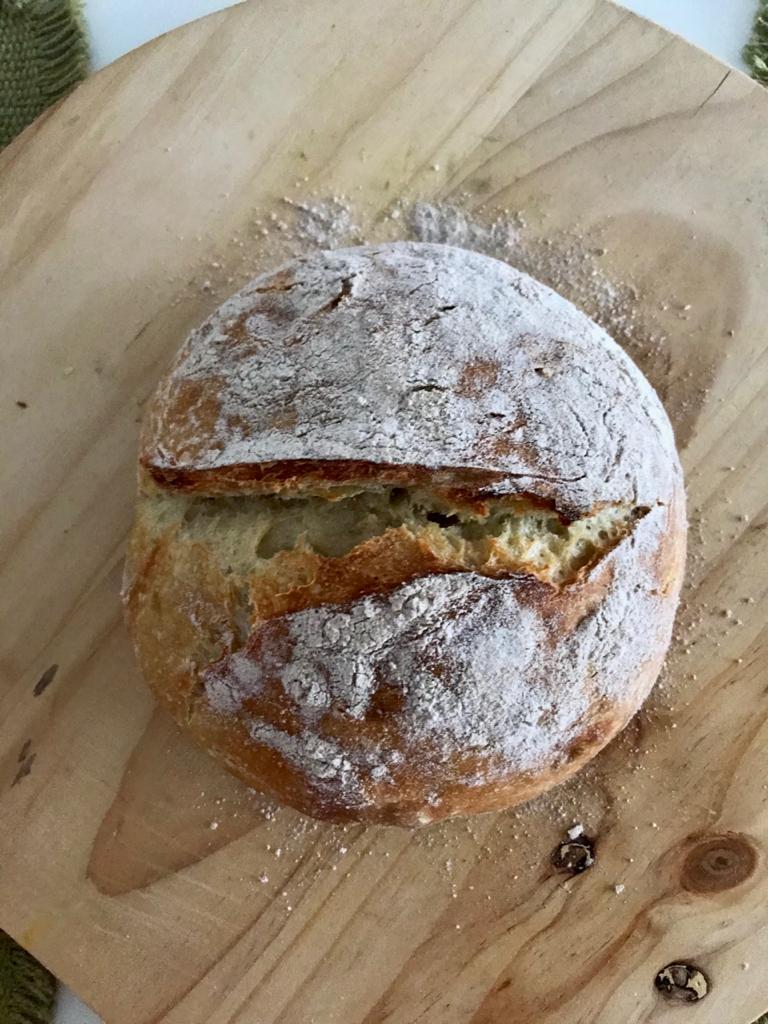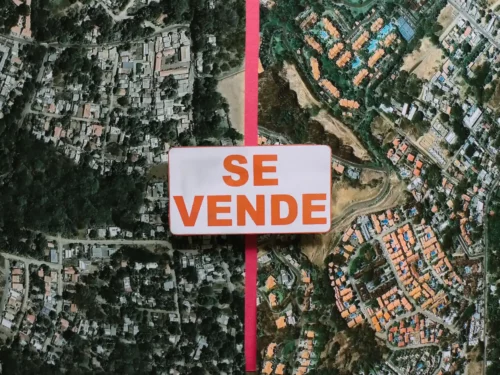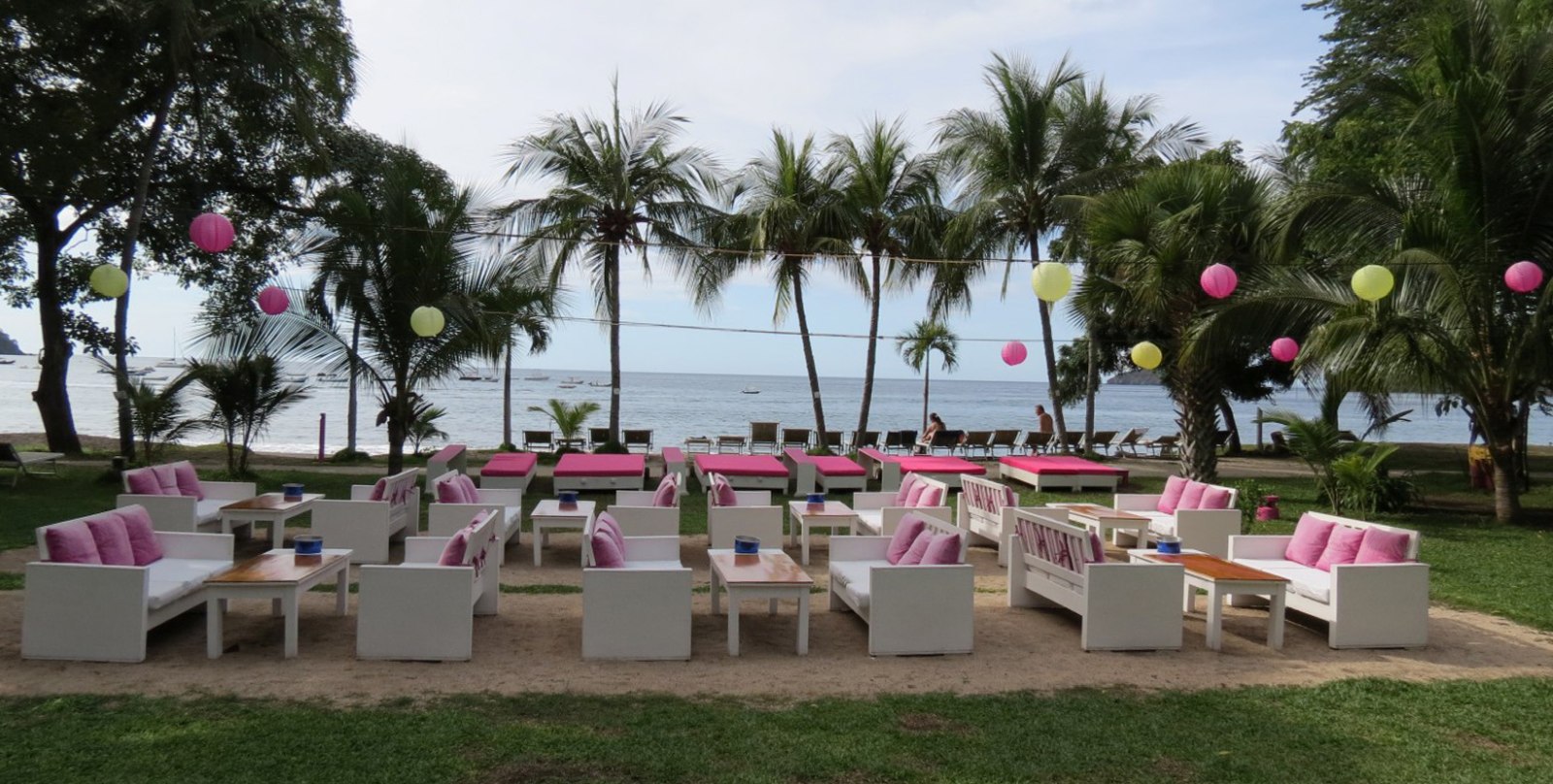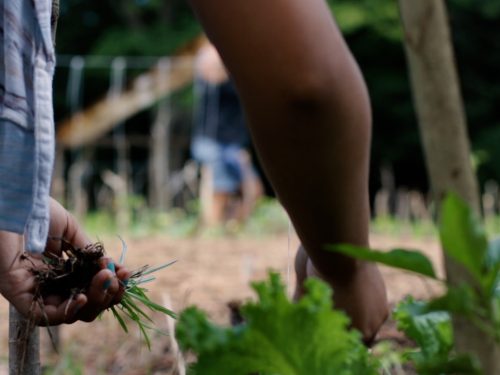
Playas del Coco, in Carrillo, Guanacaste, resurrected the oldest method of payment of humanity: barter. The residents of that community bet on reducing the use of money and taking advantage of their skills to face the pandemic because of COVID-19.
The idea came from Marie DeFlandre, a French woman who has been living in Playas del Coco for two years. She, who worked in a hotel, along with some of her friends, were left without work due to the closure of these places and of shops linked to the tourist sector on the coast.
According to the employment survey of the National Institute of Statistics and Census (INEC), by the IV Quarter of 2019 Guanacaste was the second largest source of employment for hotels and restaurants, a sector that employs 23,179 people.
Due to the COVID-19 crisis, 140 hotels in the province had to close, leaving economic losses of $300 million and affecting around 2,000 employees, according to the Guanacaste Chamber of Tourism (Caturgua).
According to DeFlandre, the initiative consists of being able to use barter or exchange services or products as a means of payment, avoiding the use of money due to lack of income.
People do not have money, but they do have time and skills. There are also other people who are finding their talents in different fields and can exchange them,” said DeFlandre.
One for another
In Playas del Coco the dynamics are still rudimentary. In a virtual list, DeFlandre writes down the name of each person participating in the barter, with their phone number and social networks. Next to this, it notes the respective products or services offered for barter.
The list for now is of 15 Costa Ricans and foreigners who reside in the area and offer everything from functional exercise classes to food and pastry. She hopes that people will continue to sign up.
The dynamic is as follows: in order to barter, all you have to do is get in touch with the enlisted people and reach an agreement between both parties. Only people who are on the list can participate.
“A yoga class can be the equivalent of two plates of lunch, for example. Exchanges are sealed with trust between the two sides”, DeFlandre continues.
Italian Elisa D’ambrosio is also a neighbor of Playas del Coco and says that before the pandemic she had two jobs: she worked as a personal trainer for functional classes in the mornings; and in the evenings, at a local restaurant. However, her work routine was affected by social distancing, making her job impossible.
However, thanks to the initiative of her friend Marie DeFlandre, she kept her job as a personal trainer in exchange for food and other services that are being provided under the exchange dynamics.
“I offer functional classes and have been able to exchange it for peanut butter, food plates and yoga classes. I have about two exchanges a week,” explained D’ambrosio.
The creator of the dynamic, Marie DeFlandre, said that in France, her native country, the dynamic of bartering is much more deeply rooted and there are even digital platforms that allow the processes to be streamlined. One of them is called Pwiic, a startup that allows you to find close neighbors with the availability of exchanging their services.
This year, in the face of the COVID-19 crisis, this platform reached 75,000 members according to what was stated by Pwiic’s co-founder, Nathalie Devriese, during a transmission viaFacebook.
More to list
If you are interested in being part of the barter listings, you must go through a confidence and security assessment prior to inclusion in the catalog listing.
Marie DeFlandre is responsible for evaluating whether the person concerned is trustworthy and whether their products comply with hygiene measures, or whether the services can be provided virtually.
To be included in this list you can contact Marie DeFlandre at her official website Instagram.
Services such as physical exercises or yoga classes are provided through live broadcast, using social networks such as Whatsapp or the platform Zoom, for example.
In the case of food, DeFlandre claims that there is a strong focus on hygiene measures.
“For everything that is not virtual, each person has to respect the rules of safety and hygiene. I leave the dishes on people’s doorsteps, I also wear gloves, so we don’t have physical contact,” she remarked.
Juanda Baires, a Salvadorian and also a resident of Playas del Coco, believes that an expansion of barter should be considered, as long as the services and products are reliable.
“I think it’s a very good idea, much more in these times. I also think it can be applied in other communities, as long as trustworthy services or products are provided,” said Baires.
The idea is to keep on trading even after the crisis. So far, DeFlandre claims that people from Liberia have contacted her to start doing barter in that canton.
“Most of the offer is in the Coco. I’ve had the interest of a few people in Liberia, but they have to agree to see if it is safe and if you can barter from there,” he ended.








Comments